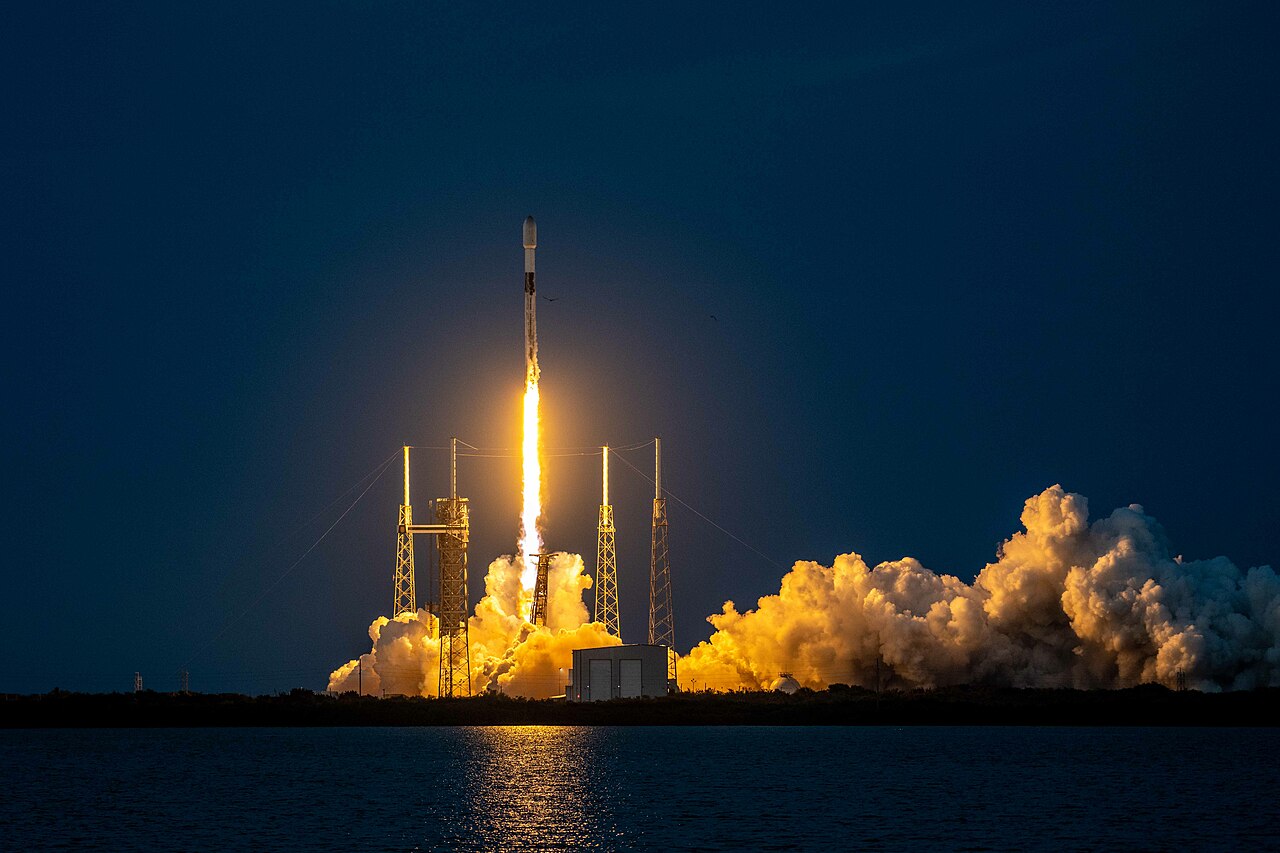Europe is at risk of falling behind in the global race for modern satellite infrastructure. With its investment in Eutelsat, the EU aims to counter Elon Musk’s dominance through Starlink and pursue its own strategic path.
A leadership change is set for European satellite operator Eutelsat: On June 1, 2025, Jean-François Fallacher, currently CEO of Orange France, will take over the reins of the French firm. His predecessor, Eva Berneke, had recently overseen the merger with British satellite company OneWeb, which operates a fleet of low-earth orbit (LEO) satellites. These LEO satellites orbit at lower altitudes, making them ideal for building fast and affordable communication infrastructure, primarily providing broadband internet with speeds of up to 195 Mbps. As data volumes and speed requirements grow, building such infrastructure is key for remaining competitive on the global stage.
Following the merger with OneWeb, Eutelsat now controls about 650 LEO satellites, primarily developed and operated by the British side. However, that’s still far from the scale of Starlink, which boasts a rapidly growing network of over 8,500 LEO satellites and plans to reach 12,000 in the near future. Starlink dominates the European market, particularly in underserved rural areas where its mobile access terminal has gained strong traction. Its system is simple: a Starlink terminal provides a Wi-Fi connection usable via smartphones, tablets, or computers. Around 5.4 million people currently use the service globally to access the internet.
A Declaration of Intent From Brussels
The EU’s involvement in Eutelsat is closely tied to its flagship satellite project IRIS² — Infrastructure for Resilience, Interconnectivity and Security by Satellite. The total budget for IRIS² stands at €10.6 billion, with €6.5 billion coming from public funds (EU and ESA), and over €4 billion expected from private investors. Eutelsat, a key technology player within the consortium, plans to contribute around €2 billion of its own.
But there’s a catch: Eutelsat is heavily indebted — about $2.7 billion — and remains reliant on government subsidies until it can establish a profitable business model. This raises concerns about the EU funding a long-term subsidy project. Moreover, there’s the structural issue of innovation fatigue in firms propped up by public support. In contrast, Starlink’s market-tested, agile model may give it a clear long-term advantage.
So what’s next? Eutelsat is collaborating with companies like Airbus and Deutsche Telekom to expand its existing satellite network. The objective is digital sovereignty — enhancing the European Union’s resilience amid rising geopolitical risks. The threat posed by over-reliance on foreign infrastructure during international disputes is very real. Starlink’s de facto dominance of strategic satellite infrastructure over Europe cannot be ignored.
The situation brings to mind the EU’s decision decades ago to create Airbus as a counterweight to Boeing. It took billions in subsidies before Airbus became commercially viable — an economic strategy that required massive state intervention. Eutelsat, however, is different due to its geostrategic significance. The stakes are not only civilian but increasingly military.
Caught Between Geopolitical Fault Lines
Why then is the EU ramping up its support for Eutelsat now? The answer lies, in part, on the Ukrainian battlefield. Starlink has become a critical asset in the ongoing war. The Ukrainian military relies heavily on U.S. satellite navigation systems and would be virtually blind without access to them. Nearly 50,000 Starlink terminals are currently used by Ukrainian forces to coordinate artillery and drone operations. (RELATED: Running Out of Cards in Kursk)
As tensions grow between President Donald Trump’s administration and Ukraine’s Western allies, concerns mount that Starlink access could be used as a bargaining chip. Should the U.S. fully disengage from the conflict — as some anticipate following Trump’s resource deal with Kyiv — the military use of Starlink could be jeopardized. The fact that European leaders were reportedly excluded from the latest negotiations is telling: it’s a political humiliation that underscores the EU’s renewed desire for strategic independence.
Yet another implication is emerging: Europe’s accelerated push for its own satellite communications infrastructure could hint at its readiness to take on a more active role in the Ukraine conflict should the U.S. step back. This effort fits into the broader, increasingly assertive EU rhetoric around military industrial policy and rising defense budgets.
Back in March, European Commission President Ursula von der Leyen unveiled a defense agenda proposing up to €800 billion in new funding. The EU is also seeking to support member states in supplying Ukraine with missiles and air defense systems via a €150 billion loan scheme. In this context, the Eutelsat initiative fits seamlessly into the EU’s broader plan to build out its own military infrastructure — geopolitical puzzle pieces falling into place.
READ MORE from Thomas Kolbe:
Europe’s Energy Suicide: Brussels Trades Industry for Ideology
























